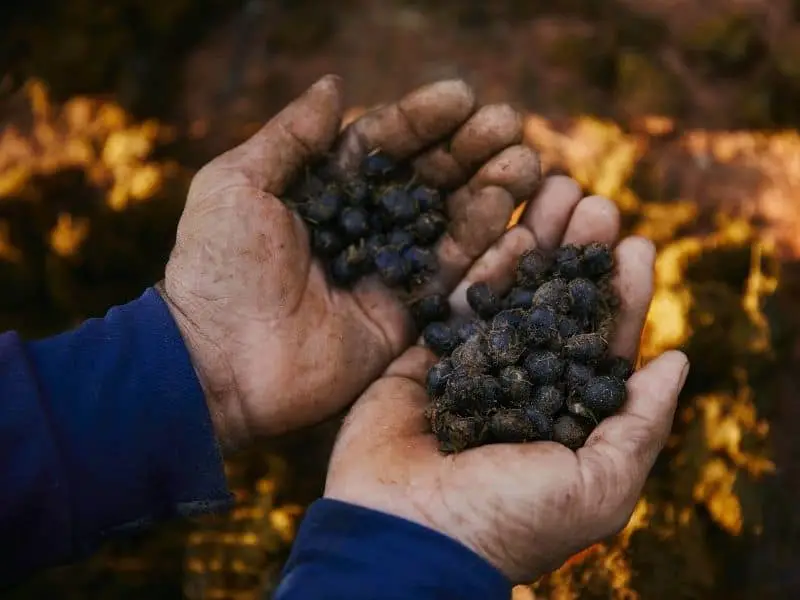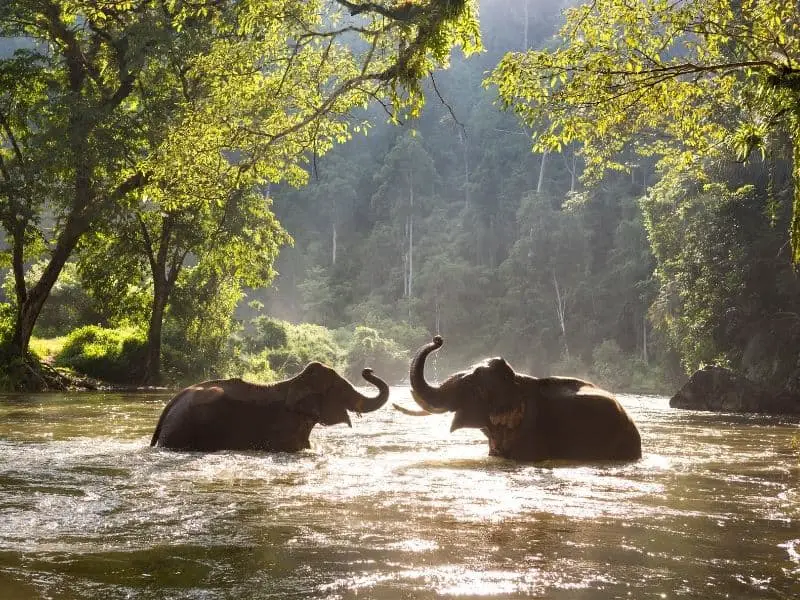Black Ivory Coffee is one of the most expensive coffees in the world.
But what makes it so special? And why is it so expensive? In this article, we will explore everything you need to know about Black Ivory Coffee.
We will discuss what it is, how much it costs, and why it is so popular. We will also compare Black Ivory Coffee with Kopi Luwak, another famous coffee that is known for its high price tag.
So if you’re curious about this luxurious coffee, keep reading.
What is Black Ivory Coffee?
Black Ivory coffee is the rarest coffee in the world.
It is not a special single-origin bean, nor is it from coffee beans cultivated in an obscure mountain region – the world’s rarest and most expensive coffee is actually made from beans that have been consumed by elephants, excreted, and then recovered from their droppings.
This takes place at the Golden Triangle Elephant Foundation, a sanctuary for about 20 elephants, in Surin which is in North-East Thailand.
The sale of the coffee beans helps fund the healthcare of the elephants at the foundation, and veterinary experts have determined that the elephants suffer no ill effects from eating the coffee cherries.
The coffee cherries are pure Arabica grown in the highlands and handpicked for their ripeness and are fed to the elephants along with their normal food – bananas, rice, and tamarinds.
The coffee cherries take up to 72 hours to pass through the elephant’s system. They are then picked out from the elephants’ droppings and sent to local schools, where the students wash them and check for sizing, to ensure a consistent roast.
To make sure they are as fresh as possible, they are only roasted to order, packed, and despatched for each customer – there are no storage facilities for roasted beans.

How much does Black Ivory Coffee cost?
Two of the coffee bean types recognized as the best in the world, Jamaica Blue Mountain and Hawaiian Kona sell for around $100 per kg, making them the most expensive single-origin beans available.
However, a kilogram of Black Ivory Coffee beans will cost you around $2,000.
It is sold to luxury hotels in Thailand, Macau, and the Maldives, where it is charged at $50 per cup.
Why is Black Ivory Coffee so expensive?
What makes Black Ivory so exclusive is the fact that only about 200 kilograms of beans are available each year. Most of the cherries eaten by the elephants are not able to be recovered – they get chewed up, become damaged, or just lost in the forest.
It takes 33 kilograms of coffee cherries to produce 1 kilogram of the best usable beans, which means that 97% of the coffee cherries are lost in the process.
Not only that but the whole production process is labor-intensive, from picking the cherries, feeding the elephants, picking out the beans from the droppings, washing and sorting the beans through to roasting and packing – all done by hand.

What does Black Ivory Coffee taste like?
We might think that coffee beans produced in this way have a simple novelty value, but in fact, as they pass through the elephant’s digestive system the gastric acids and enzymes in the elephant’s stomach break down the proteins that cause bitterness in coffee, giving a much smoother taste.
The digestive process starts fermentation within the beans, resulting in a delicate flavor that has been compared to a rich tea, with notes of chocolate, tobacco, and leather without the bitter after-taste we normally associate with coffee – a unique and distinctive brew.
Black Ivory Coffee vs Kopi Luwak
Elephants around the world are a protected species, and in Thailand, in the past, there have been controversies and criticisms aimed at tourist parks that trained and presented elephants for visitors’ amusement – elephant rides, etc.
To keep the integrity of their product the staff and elephants handlers at the Golden triangle Foundation are specially trained in the care and welfare of these great animals, and there are regular veterinary visits to check on their condition.
The concept of coffee cherries recovered from animal droppings is also a feature of Kopi Luwak in Indonesia and to a lesser extent Caphe Chon in Vietnam.
These use coffee beans that have been eaten by civet cats, however, in these countries they have been internationally criticized for their production methods.
Due to the difficulties of following the cats in the wild, and because of the high prices that can be paid for the coffee, many businesses have been set up as intensive farms.
Stories have emerged of the civet cats being kept in small cages like battery hens, and force-fed coffee cherries.
Despite this, Kopi Luwak is in high demand, although nothing like Black Ivory. The price per kilogram for farmed Kopi Luwak is around $100, equivalent to Blue Mountain or Kona.
But Kopi Luwak certified from animals in the wild goes up to $1,300 per kg reflecting the rarity and difficulty of gathering it.
Final thoughts on Black Ivory Coffee
The expensive coffee beans are sourced from the droppings of wild elephants, which makes it one-of-a-kind.
The Black Ivory Coffee is a rarity in that there are only about 200 kilograms available each year.
It tastes different than other types of coffees because its processing method breaks down proteins that cause bitterness and gives it a unique taste – like rich tea with notes of chocolate, tobacco, and leather but without an aftertaste.
At $2,000 per kg, you are unlikely to find Black Ivory on your grocery store shelves any time soon, and if you have the budget to pay $50 a cup you will have to travel to the Far East to try it.
But it may just be worthwhile having it on your bucket list, as one of the most exclusive beverage experiences in the world.
